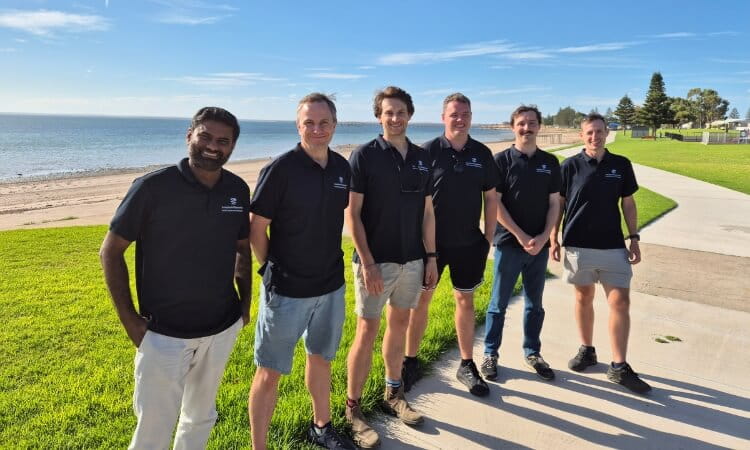Innovative construction and fertiliser products funded

A new national funding program, designed to shift the dial on Australian research, has backed two state-of-the-art University of Southern Queensland projects.
The Commonwealth’s Department of Education has unveiled the first two tranches of Australia’s Economic Accelerator (AEA) Seed Grants to help translate concepts into commercialisation.
Deputy Vice-Chancellor (Research & Innovation) Professor John Bell congratulated the successful University of Southern Queensland recipients - Dr Omar Alajarmeh and Associate Professor Lei Ge.
“Our research is all about forging new directions and exploring new ideas, but key to everything is delivering positive impact,” Professor Bell said.
“These two projects delve into high-performance alternative products for major industries that are both cost-effective and have potential to mitigate greenhouse gas emissions.
“We’re excited to see Australia reap the benefits of this investment.”
Dr Alajarmeh, a Senior Research Fellow (Civil Composites) from the Centre for Future Materials will focus on developing a greener and cheaper manufacturing option - bendable thermoplastic glass fibre reinforced polymer (GFRP) composites.
“These high-performing and low-cost composites are made by pultruding glass fibres and infusing with waste thermoplastics,” Dr Alajarmeh said.
“These composites will offer a sustainable solution for the construction and resource sectors by increasing the service life of critical infrastructures, as well as having lower C02 emission and less energy consumption compared to traditional manufacturing methods.”
Dr Alajarmeh’s research team for the project includes Professor Allan Manalo, along with industry partner Beyond Materials Group.
School of Engineering Associate Professor (Nano Materials) Lei Ge’s research will utilise lignite or ‘brown coal’ in slow-release fertilisers (SRFs).
“The proposed lignite-based products not only have the potential to overcome the cost barrier of market-ready polymer-embedded SRFs but can also remove the use of polymer coating plus the release of micro-plastics from the fertiliser industry,” Associate Professor Ge said.
“It will help ease greenhouse gas emissions, improve fertiliser effectiveness and greatly reduce nutrient run-off to the waterways.”
The multidisciplinary research team includes Professor Hao Wang (Materials and Manufacturing) and Professor Bernadette McCabe.
Industry partners include Omnia Specialities (Australia), Sustainable Solutions Global, APIED and Australian Engineering.
Learn more about UniSQ Research.

